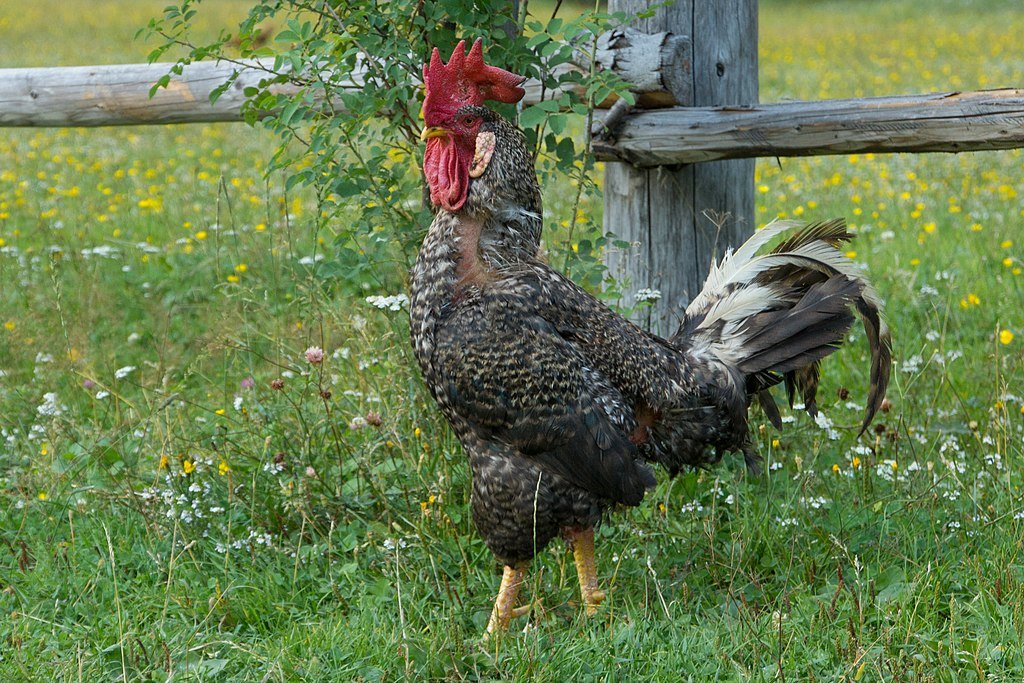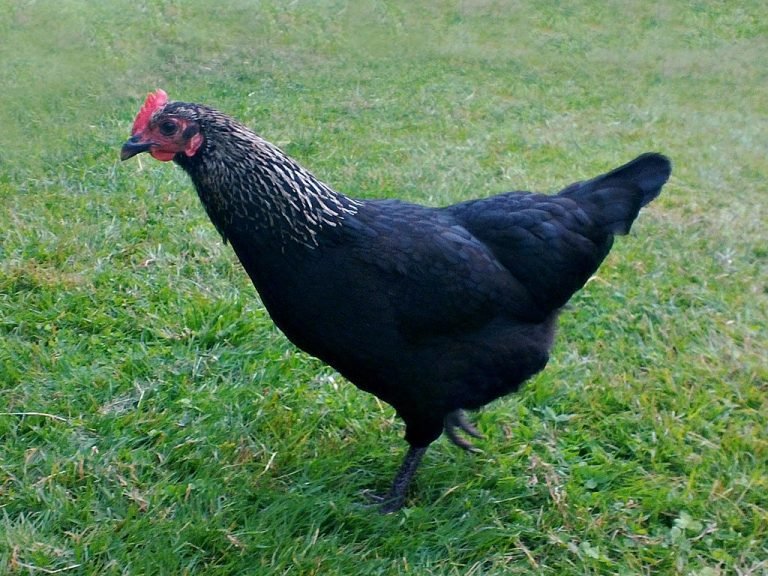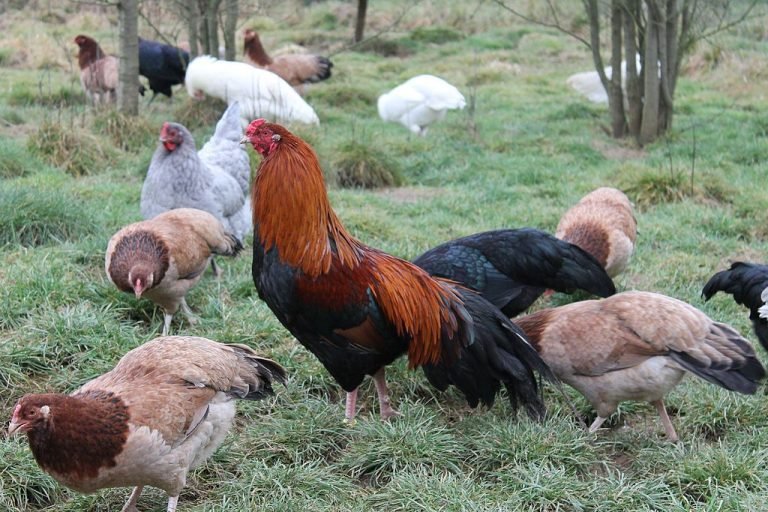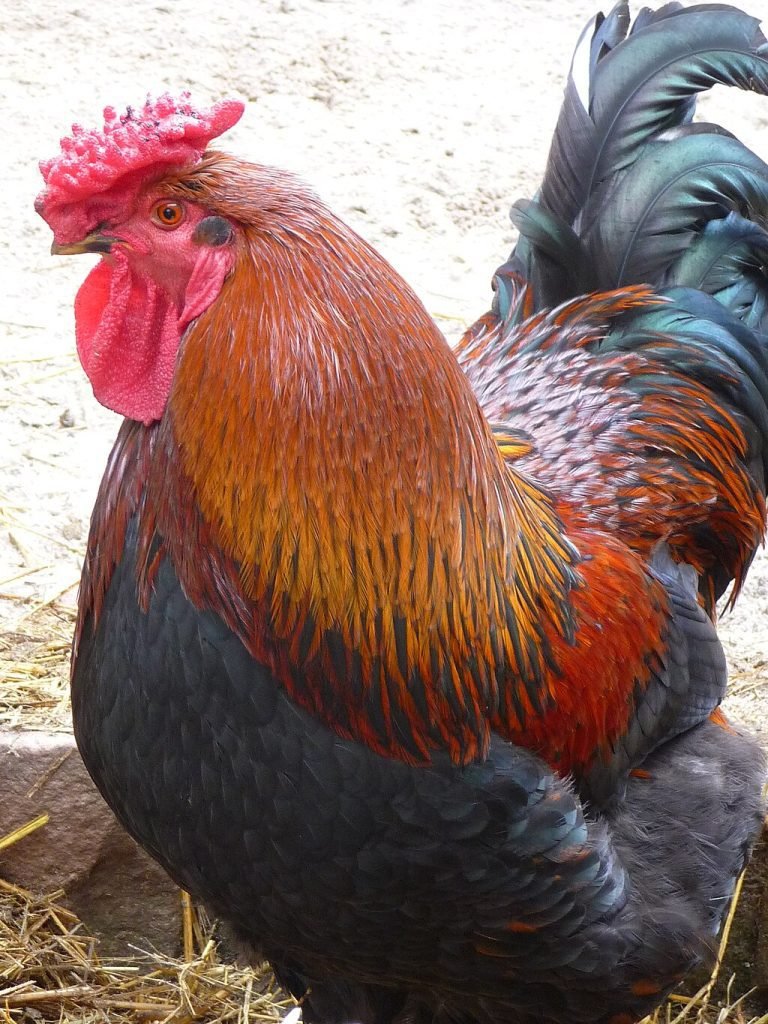Plymouth Rock is a popular chicken breed known for its versatility and hardiness. Plymouth Rock chickens are a versatile and resilient breed that has gained popularity among poultry enthusiasts.
They are known for their ability to adapt to different climates and their excellent egg-laying capabilities. Developed in the United States in the mid-19th century, Plymouth Rocks are recognized for their striking black and white striped plumage and friendly, docile temperament.
These chickens are not only valued for their productivity but also for their meat quality, making them a favorite choice for small-scale farmers and backyard chicken keepers. Whether you are a beginner or an experienced poultry keeper, the Plymouth Rock breed is sure to bring joy and satisfaction to your flock.
History
The Plymouth Rock chicken breed holds a significant place in poultry history. Developed in the United States during the 19th century, this breed quickly gained popularity for its resilient nature and excellent egg-laying abilities. Today, Plymouth Rocks are cherished for their versatility, beauty, and friendly temperament.
Let’s delve into the captivating history of this remarkable breed:
- Origins: Plymouth Rocks originated in New England, specifically in Massachusetts. The breed was developed by crossing various chicken breeds, including the Dominique, Black Javas, and Cochin. This careful crossbreeding resulted in a unique breed that possessed desirable traits from different ancestral breeds.
- Recognition: Plymouth Rocks were first exhibited in poultry shows in Boston, Massachusetts, in the 1840s. Due to their exceptional qualities, they gained immense popularity among poultry breeders. In 1869, the American Poultry Association officially recognized the Plymouth Rock breed.
- Contribution to Poultry Industry: Plymouth Rocks played a crucial role in the development of the American poultry industry. Their ability to thrive in diverse climates and lay a consistent number of eggs throughout the year made them a preferred choice for both small-scale and commercial poultry farmers.
- World War II: During World War II, Plymouth Rocks gained further prominence due to their ability to efficiently convert feed into meat and eggs. They provided a valuable source of sustenance for families during times of resource scarcity.
- Continued Popularity: Even after more than a century, Plymouth Rocks continue to be admired by poultry enthusiasts and backyard chicken keepers worldwide. Their striking appearance, with distinct patterns and color variations, adds charm to any flock.
- Varieties: Over time, various color varieties of Plymouth Rocks emerged, including Barred, White, Buff, Silver Penciled, Partridge, and Blue. Each variety has its unique characteristics, but all retain the breed’s overall vitality and productivity.
The rich history of the Plymouth Rock chicken breed is a testament to its enduring appeal and importance in the world of poultry. These remarkable birds continue to captivate with their beauty, resilience, and utility, making them a beloved choice for chicken enthusiasts of all levels of experience.

General Characteristics
The Plymouth Rock chicken breed is known for its general characteristics. These include being hardy, friendly, and productive egg layers, making them a popular choice for backyard chicken enthusiasts. They have a docile temperament and adapt well to various climates.
Plymouth Rock chickens are a popular breed known for their versatility and adaptability. Originating in the United States, this breed has gained recognition for its excellent egg-laying abilities and calm temperament. In this section, we will explore the general characteristics of Plymouth Rock chickens and why they make a great addition to any backyard flock.
Appearance
- Plymouth Rock chickens are medium-sized birds with a broad and deep body.
- They have a single comb and wattles that are bright red in color.
- The breed comes in several color varieties, including Barred, White, Buff, Silver Penciled, and Partridge.
- One distinct feature of Plymouth Rock chickens is their black and white striped plumage, which gives them a bold and attractive appearance.
Egg Production
- One of the main reasons why chicken enthusiasts choose Plymouth Rocks is their exceptional egg-laying capabilities.
- On average, a Plymouth Rock hen lays about 200-280 large brown eggs per year.
- They start laying eggs at around 4-5 months of age and continue to lay consistently throughout their productive years.
- Plymouth Rocks are known for their reliability in egg production, making them a valuable asset to any egg-focused flock.
Hardiness
- Plymouth Rock chickens are hardy and adaptable birds, able to tolerate a wide range of climates.
- They can withstand both hot and cold weather conditions, making them suitable for various geographic locations.
- Their robust nature also allows them to handle different management systems, whether free-range or confined to a coop.
Dual-Purpose Abilities
- While Plymouth Rocks are excellent egg layers, they also possess decent meat-producing qualities.
- Their weight and size make them suitable for both egg and meat production, providing versatility to backyard chicken keepers.
- Plymouth Rock meat is flavorful and tender, making it a preferred choice for many poultry enthusiasts.
Plymouth Rock chickens are a versatile and reliable breed valued for their excellent egg-laying abilities, calm temperament, adaptability, and dual-purpose qualities. Whether you are a novice chicken keeper or an experienced poultry enthusiast, the Plymouth Rock breed is sure to make a wonderful addition to your flock.
Temperament
The Plymouth Rock chicken breed is known for its friendly and adaptable temperament, making it a popular choice for backyard chicken enthusiasts. With their calm and docile nature, they are easy to handle and are friendly towards humans and other animals.
The Plymouth Rock chicken breed is known for its friendly and docile temperament. They make excellent pets and are a popular choice for backyard flocks. Here are some key points about their temperament:
- Friendly: Plymouth Rocks are known for their friendly nature and enjoy interacting with their owners. They are often seen following their owners around the yard and are quite sociable with both humans and other flock members.
- Docile: These chickens have a calm and gentle disposition, which makes them a great choice for families with children. They are generally easy to handle and are tolerant of being petted and held.
- Curious: Plymouth Rocks are naturally curious birds and enjoy exploring their surroundings. They are known to be good foragers and can often be spotted scratching and pecking at the ground in search of insects and other treats.
- Tolerant: These chickens are known for their ability to adapt to various living conditions. They are not easily spooked and can tolerate changes in their environment, making them a good choice for beginners.
- Hardy: Plymouth Rocks are resilient birds that can withstand various weather conditions, including cold winters and hot summers. They are known to be a hardy breed that requires minimal special care.
- Not aggressive: Unlike some other chicken breeds, Plymouth Rocks are generally non-aggressive. While roosters can still display territorial behavior during mating season, it is not usually excessive or dangerous.
- Good with other chickens: Plymouth Rocks are generally good with other chicken breeds and can integrate well into a mixed flock. They are not known to be overly dominant or prone to bullying other flock members.
- Adaptable: Whether you have a large backyard or a small urban space, Plymouth Rocks can adapt to various living arrangements. They are known for their adaptability and ability to adjust to different housing conditions.
So, if you are looking for a friendly, docile, and easy-going chicken breed for your backyard flock, the Plymouth Rock is definitely worth considering. Their sociable nature, tolerance, and adaptability make them a great choice for both novice and experienced chicken keepers alike.
Comb Types
Plymouth Rock chickens are known for their distinct comb types, which play a significant role in their appearance and functionality. Let’s explore the various comb types found in this breed:
Single Comb
- The most common comb type seen in Plymouth Rock chickens.
- Consists of a single row of elongated, thin, and evenly serrated points.
- Provides good heat dissipation and enables efficient regulation of body temperature.
Rose Comb
- A rounded comb with a low profile.
- Has a broad base and smooth curves, resembling the shape of a rose.
- Helps protect the chicken’s comb and wattles during winter, reducing the risk of frostbite.
Pea Comb
- Characterized by three distinct humps or divisions similar to peas.
- Provides excellent protection against frostbite due to its compact structure and reduced surface area.
- Ideal for cold climates.
Cushion Comb
- A cushion comb is smaller, more compact, and broader than a single comb.
- It is oval-shaped with a flat top and rounded edge, appearing like a cushion.
- Known for its resistance against frostbite and durability in extreme weather conditions.
The comb type of Plymouth Rock chicken not only adds to its beauty but also serves practical purposes. Whether it’s the single comb, rose comb, pea comb, or cushion comb, each variety offers unique benefits for the birds. Understanding these comb types allows chicken enthusiasts to make informed decisions when selecting and caring for their beloved Plymouth Rock chickens.
So, choose wisely and provide the appropriate comb type for your chickens, ensuring their comfort and well-being.
Conclusion
The Plymouth Rock chicken breed is a fantastic choice for both novice and experienced chicken keepers. Their docile and friendly nature makes them a joy to interact with, while their ability to thrive in various climates and adapt to different environments makes them highly versatile.
With their iconic black and white striped plumage, they add a touch of nostalgia and charm to any backyard or small farm. Not only are Plymouth Rock chickens visually appealing, but they are also known for being productive layers, providing a steady supply of delicious, nutritious eggs.
Their ability to tolerate both heat and cold weather ensures year-round production. Whether you are looking to raise chickens for eggs, meat, or simply as pets, the Plymouth Rock breed should be at the top of your list. Their hardiness, easygoing temperament, and overall reliability make them an excellent choice for any poultry enthusiast.
So, consider adding some Plymouth Rocks to your flock and experience the joys of owning these delightful and practical birds firsthand.






